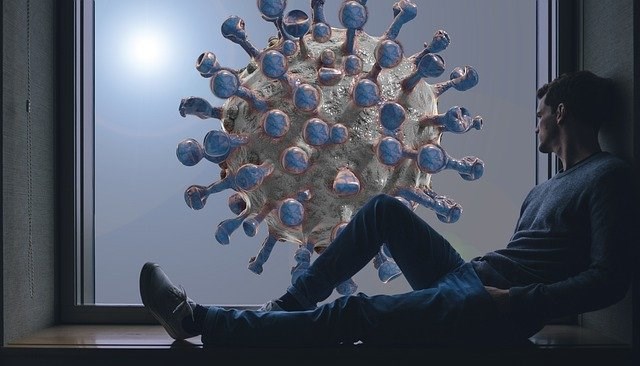After suffering from a strange undiagnosed illness, a Saskatchewan man hopes the province will offer tests to detect COVID-19 antibodies.
Antibody testing may determine if someone had COVID-19. A 42-year-old southern Saskatchewan man has been to doctors and specialists in Canada and the U.S. trying to figure out what is wrong and he thinks it may have been COVID-19.
“No one can tell me what is wrong,” said Jamie Leibel, in a phone interview Aug. 12. “Everybody is scratching their heads.”
Leibel suspects his strange illness may have been COVID-19. His wife was researching his symptoms. Many of his symptoms were similar to COVID-19.
“One that really jumped out at me was burning in the nostrils,” he said.
Leibel said that was his first symptom.
“It was like sniffing hydrochloric acid.”
The symptoms first appeared in October 2019 when Jamie and his wife were in Las Vegas, Nevada. At first he attributed it to smog.
“It just got worse and worse and worse for the entire week and half that we were there and finally I said ‘we have to leave this place.’ I couldn’t take the burning in my nostrils anymore.”
Leibel had other strange flu-like symptoms. He felt lethargic and he slept and slept. He would wake up and his sheets were wet.
“I did take my temperature a couple times and it was normal.”
The couple left Las Vegas and headed to Joshua Tree National Park in Southern California where the air was cleaner and it was at a higher elevation with less likelihood of smog.
But Leibel’s condition didn’t improve.
“I got worse and worse and the burning in my nose was still there.”
His chest was burning and his face was extremely hot. He went to a doctor and had a chest X-ray, blood work and his temperature taken.
“Everything came back normal,” he said.
Leibel thought they should get out of the desert and maybe his condition would improve.
“So we went to Florida. It did start getting better but at this point we were about a month into it.”
They were in Florida for about two months and a peculiar spot appeared on his throat and his chest got worse.
“This was in January so we decided to come home. We drove all the way back from Florida.”
He went to the doctor and had X-rays and blood work, which all came back normal. So the couple went back to the U.S. but Leibel said the strange discomfort in his chest lingered.
Then COVID-19 hit North America and the couple once again returned to Saskatchewan. Leibel continued to feel unwell and went to a disease specialist in Saskatchewan.
“They tested for a couple of things and they all came back negative,” he said.
Doctors did stress tests and tests on his heart.
The cardiologist said his ECG was normal and that he was “incredibly strong” and he gave the stress test “a work out,” said Leibel.
They checked him for gastric reflux and prescribed him pills.
“It definitely was not that.”
And now they want to test for asthma, said Leibel.
“I don’t get shortness of breath or anything like that,” he said. “It’s the strangest thing. It’s physical exertion that will aggravate it.”
If he runs, his chest burns.
“A burning sensation, that is what I was getting (after physical activity) but it was lasting three or four days. I dropped all physical activity. I saw specialists and the tests came back fine.”
Right now Leibel says he feels fine other than some symptoms that come and go.
“I don’t know. Was it COVID? I have no idea. The initial symptoms seem very similar to what people are reporting.
“It’s the strangest thing I have ever had,” he added. “Maybe it’s a muscle but if it’s a muscle, that dissipates fairly quickly. I haven’t talked to anyone about anxiety if that can cause it. Right now I’m still searching.”
Leibel had two COVID-19 tests.
“Both were negative,” he said.
The first test was in March and the second test he just got the results on Aug. 11.
Leibel said he is still searching for answers and hopes the province will offer antibody testing.
“I will be looking into that for sure.”
Work is underway in the province to offer a test that could determine if someone had COVID-19. The test – known as serology testing - would search for antibodies in a patient’s blood.
Dr. Jessica Minion, Provincial Clinical Lead Public Health – Laboratory Medicine at the Roy Romanow Provincial Laboratory in Regina, said serology is being used across the country to estimate population-level seroprevalence, and Saskatchewan is engaged in multiple studies of this nature.
Dr. Minion said the performance of COVID-19 serology tests is still being investigated, but at this time they have no role in acute diagnosis and should not be used as an indicator of immunity.
“Any patient that has an indication for COVID-19 antibody testing can access it from anywhere in the province with phlebotomy services,” she said Aug. 12. “The testing itself is currently being done at a reference lab outside the province, while Saskatchewan laboratories work to validate the assays themselves.
“The indications for COVID-19 antibody testing are limited and require approval by a microbiologist prior to collection,” she added. “These include pediatric patients suspected to have multisystem inflammatory syndrome in children (MIS-C); patients with severe presentations lasting more than two weeks in the setting of multiple negative diagnostic tests where results may be helpful for clinical management or public health action; and occasionally in the setting of complex public health contact investigations.”



